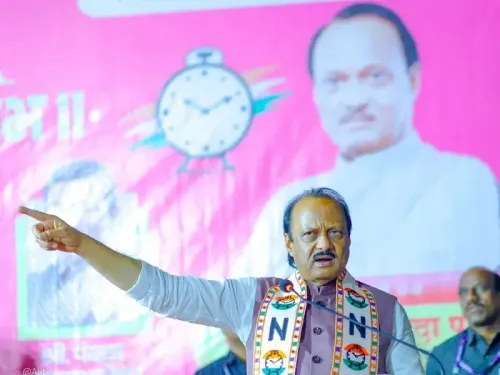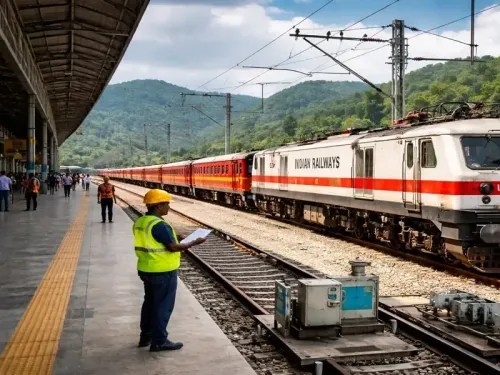Has the Maha Cabinet made the use of ‘M-Sand’ mandatory in the construction sector?

Synopsis
Key Takeaways
- M-Sand is now mandatory in the construction sector in Maharashtra.
- The royalty for M-Sand production is set at Rs 200 per brass.
- Only quality M-Sand compliant with Bureau of Indian Standards norms is allowed.
- Incentives are being offered to promote the establishment of M-Sand units.
- This policy aims to provide sustainable resources and environmental protection.
Mumbai, May 13 (NationPress) The Maharashtra Cabinet, led by Chief Minister Devendra Fadnavis, has on Tuesday approved a policy mandating the use of M-Sand (manufactured sand) in the construction industry. This initiative aims to address the environmental issues linked to the excessive extraction of natural sand while providing a sustainable alternative for construction needs.
Rather than the previous royalty fee of Rs 600 per brass for sand extraction, the Cabinet has introduced a reduced royalty of Rs 200 per brass. M-Sand, created using crushers from quarry waste and stones from mountain excavations, serves as a viable substitute for natural sand.
The policy stipulates that authorization to establish M-Sand units will be granted following approval from the district administration and forest department, with adherence to environmental regulations as a prerequisite, according to a government announcement.
All government, semi-government, and public institutions in Maharashtra are now required to prioritize the use of M-Sand in their construction projects.
Furthermore, it has been emphasized that only high-quality M-Sand should be utilized, complying with the standards set by the Bureau of Indian Standards (IS 383:2016). To support this initiative, the Industries Department plans to offer concessions to 50 individuals or institutions per district for establishing M-Sand units, along with a royalty concession of Rs 200 per brass for units producing M-Sand.
The government believes that M-Sand units will generate local employment, lessen reliance on natural sand, and aid in environmental conservation. To ensure the strict execution of this policy, district-level committees will be established along with an independent monitoring mechanism,” stated the government release.
This initiative is anticipated to significantly transform the construction industry, fostering environmental conservation, sustainable growth, and boosting the local economy. The Cabinet has also approved various incentives, including industrial grants, interest subsidies, exemptions from electricity charges, stamp duty waivers, and subsidies on electricity rates for those investing in M-Sand unit setups.
In other news, the Cabinet has accepted the Mukesh Khullar committee’s findings regarding salary discrepancies. This committee was tasked with addressing salary inconsistencies among government employees and officers.
The committee submitted its report to the state government on December 31, 2024, which was subsequently approved by the Cabinet on Tuesday. Following the implementation of the Seventh Pay Commission recommendations for state government employees on January 1, 2016, some discrepancies in pay fixation were discovered.
In response, teachers across Maharashtra filed petitions in various High Court benches, prompting the formation of a Pay Error Committee under Mukesh Khullar on March 16, 2024. This committee engaged with several administrative departments and organizations, considering various proposals and submitted its recommendations to the Finance Department.
Upon reviewing proposals from different cadres, the committee noted that despite the increase in the pay scale per the government decision dated February 13, 2023, certain employees received lower pay than before. The committee has recommended adjustments to ensure that the pay in the new scale does not fall below prior levels and to amend conditions regarding single posts exceeding S-27 in the government decision dated March 28, 2023.
The committee also suggested that employees in the same cadre but different departments should receive revised pay scales. Furthermore, it recommended rectifying any pay scale reductions in the promotion chain due to pay scale revisions.
The proposed pay adjustments will be effective from January 1, 2016, and financial benefits will be applicable from the month the government orders are issued, albeit with no arrears payable from January 1, 2016, until the issuance of government orders.










